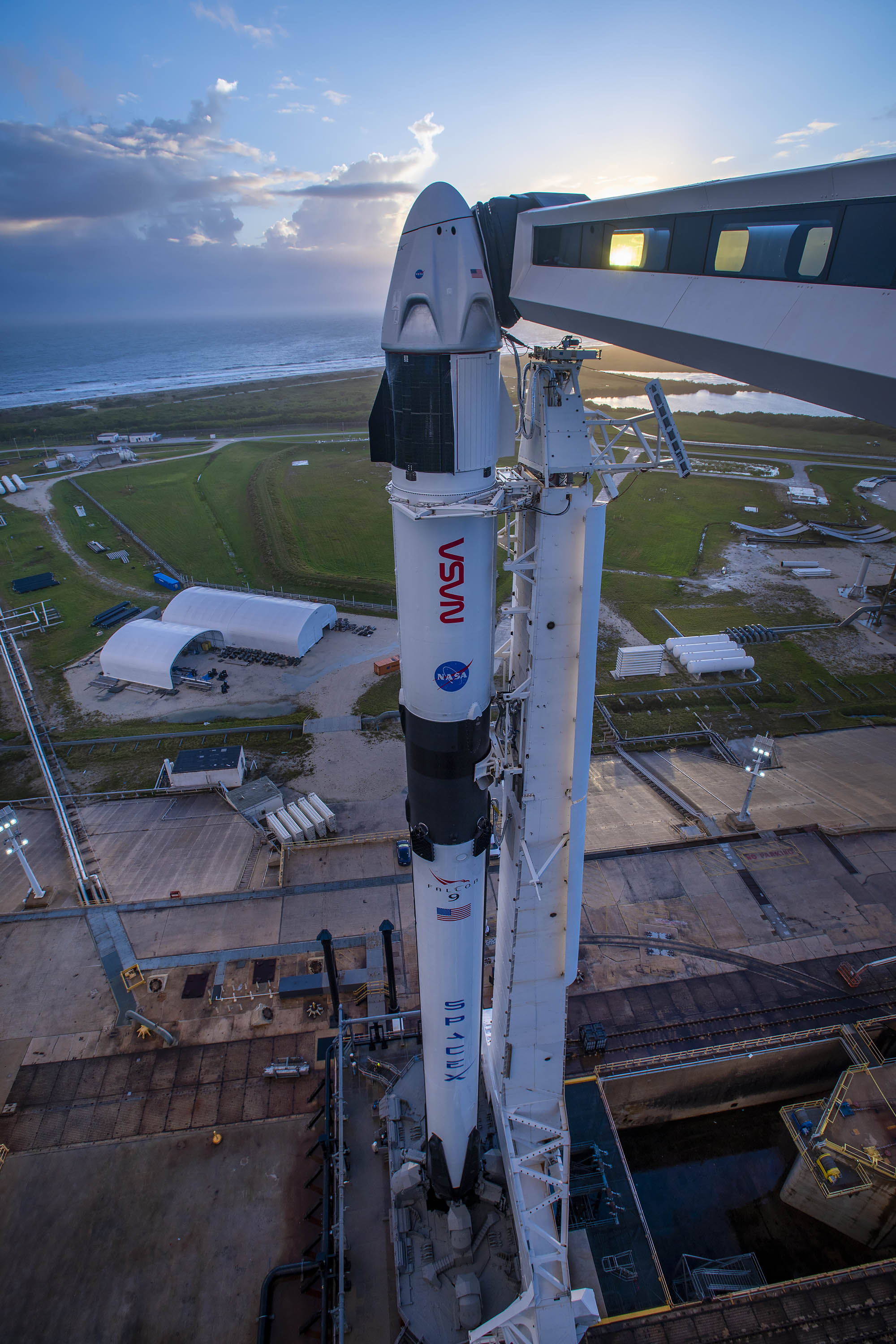Watch SpaceX launch 4 astronauts to the ISS Saturday
SpaceX had engine trouble in October.

Update Nov. 13, 6:00 p.m. EST: NASA announced Saturday’s Crew-1 launch has been delayed until Sunday, Nov. 15 at 7:27 p.m. EST, due to weather.
NASA and SpaceX are all set to launch a full crew into space tomorrow (Nov. 14) from Pad 39A at NASA's Kennedy Space Center in Cape Canaveral, Florida. This will be the first operational crew mission leaving U.S. soil, since the final space shuttle launch in July 2011. Just six months ago, SpaceX became the first private spaceflight company to launch American astronauts from American soil with their successful Demo-2 Crew Dragon test flight.
The astronauts — Americans Michael Hopkins, Victor Glover and Shannon Walker, and Japanese astronaut Soichi Noguchi — will ride a SpaceX Crew Dragon capsule mounted atop a SpaceX Falcon 9 rocket to the International Space Station (ISS). This mission's name is Crew-1, and the astronauts have named their spacecraft Resilience. Weather permitting, liftoff will take place at 7:49 p.m. EST. NASA TV's broadcast covering the launch will begin at 3:30 p.m. EST. Watch it here:
As with any launch, there's always the possibility of a weather delay. Meteorologists will watch the skies over Cape Canaveral in the minutes leading up to the launch, looking for weather patterns that could stop the countdown. A pre-published list of NASA rules states, for example, "Do not launch within 10 nautical miles of a detached thunderstorm anvil cloud."
NASA also forbids launching if the rocket would end up flying over bad weather on its way into space. That's because NASA wants to avoid an emergency splashdown in dangerous conditions if something goes wrong with the rocket, forcing the astronauts to abort and detach the crew capsule.
Demo-2, the two-person Crew Dragon test flight in May, was delayed for three days due to bad weather, Live Science previously reported. The backup date for the Crew-1 launch is just one day later: Nov. 15.
Related: Here's every spaceship that's ever carried an astronaut into orbit
Sign up for the Live Science daily newsletter now
Get the world’s most fascinating discoveries delivered straight to your inbox.
If everything goes as planned, the Crew-1 astronauts should reach the orbiting space station 8.5 hours after liftoff. Hopkins, Glover, Walker and Noguchi will join Russian cosmonauts Sergey Ryzhikov and Sergey Kud-Sverchkov, as well as NASA astronaut Kathleen Rubins, who rode together to the ISS in a Russian Soyuz capsule on Oct. 21. All seven ISS tenants will together make up "Expedition 64," the 64th group to work on the ISS. They are expected to remain in orbit for six months, until spring 2021.
Rocket engine troubles and a COVID-infected billionaire
There are two potential hiccups that could hinder a smooth launch for Crew-1 tomorrow.
First, while Falcon 9 rockets have been in use for years without major incidents, an Oct. 2 Falcon 9 satellite launch from Vandenberg Air Force Base was aborted at the last second because of a new manufacturing flaw involving a red "masking lacquer" blocking a valve. SpaceX delayed further Falcon 9 launches until the defective engines could be swapped out, Live Science previously reported. SpaceX launched a GPS satellite aboard a Falcon 9 with the new engines on Nov. 5, without incident.
Crew-1 will be the second launch on the new engines.
Another cause for concern emerged earlier today (Nov. 13), when SpaceX founder and CEO Elon Musk announced on Twitter that he had tested positive for COVID-19. (He also said "something extremely bogus is going on" because two of four tests he had taken Nov. 12 had come back negative. Musk seems unaware that false negatives are possible with any test, as Live Science has reported.)
"We're looking to SpaceX to do any contact-tracing that is appropriate," NASA Administrator Jim Bridenstine said during a news conference today, Live Science sister site Space.com reported. "Of course if there are changes that need to be made, we will look at those. But it's very early right now to know if any changes are necessary at this point."
Bridenstine said he was not aware of any contact between Musk and the CREW-1 astronauts.
Originally published on Live Science.











